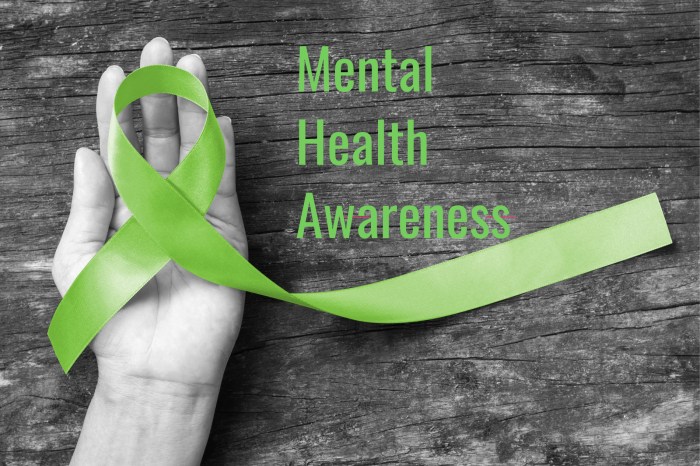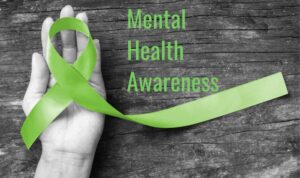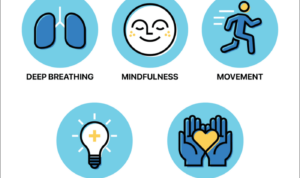Starting with Mental Health Awareness, let’s dive into the critical need for awareness in our society today. From impacting individuals to entire communities and workplaces, the importance of mental health awareness cannot be overstated.
Let’s explore the stigma surrounding mental health, the essential education and resources available, effective self-care strategies, and the unique challenges faced by different age groups.
Importance of Mental Health Awareness

In today’s society, mental health awareness is crucial as it helps in promoting overall well-being and reducing stigma surrounding mental health issues. By raising awareness, individuals, communities, and workplaces can create a supportive environment for those struggling with mental health challenges.
Impact on Individuals
- Mental health awareness encourages individuals to seek help when needed and promotes self-care practices.
- It helps in reducing the feelings of isolation and shame that often accompany mental health disorders.
- Individuals are more likely to prioritize their mental health and engage in healthy coping mechanisms.
Impact on Communities
- Communities that prioritize mental health awareness are more likely to have resources and support systems in place for those in need.
- It fosters a sense of belonging and understanding within the community, leading to increased empathy and compassion.
- Communities with strong mental health awareness are better equipped to address mental health issues and provide assistance to those in crisis.
Impact on Workplaces
- Workplaces that promote mental health awareness have higher employee morale and productivity.
- Employees feel supported and valued, leading to improved job satisfaction and retention rates.
- Employers can implement mental health initiatives and policies that benefit the overall well-being of their workforce.
Stigma Surrounding Mental Health
There is a significant stigma surrounding mental health that often leads to negative perceptions, discrimination, and even avoidance of individuals facing mental health issues.
Consequences of Stigmatizing Mental Health Conditions
Stigmatizing mental health conditions can have severe consequences, including:
- Preventing individuals from seeking help or treatment
- Isolating individuals and making them feel ashamed or embarrassed
- Impeding recovery and overall well-being
Combatting and Reducing the Stigma Around Mental Health
It is crucial to combat and reduce the stigma around mental health through:
- Education and raising awareness to promote understanding and empathy
- Encouraging open conversations and providing safe spaces for individuals to share their experiences
- Challenging stereotypes and misconceptions through positive representation in media and society
Mental Health Education and Resources
Educating people about mental health is crucial in breaking the stigma and ensuring individuals receive the support they need. By increasing awareness and knowledge, we can promote early intervention and destigmatize seeking help for mental health issues.
Importance of Mental Health Education
- Providing accurate information about mental health conditions and symptoms
- Teaching coping mechanisms and self-care strategies
- Promoting open discussions about mental health in schools, workplaces, and communities
- Empowering individuals to recognize when they or others may need help
Available Mental Health Resources
- Therapy and Counseling: Professional therapists and counselors offer support and guidance for mental health issues.
- Support Groups: Connecting with others facing similar challenges can provide a sense of community and understanding.
- Hotlines and Crisis Intervention: Immediate help is available through crisis hotlines for those in distress.
- Online Resources: Websites and apps offer information, tools, and support for mental health concerns.
Effectiveness of Mental Health Education Programs
- School-Based Programs: Introducing mental health education in schools has shown to increase awareness and reduce stigma among students.
- Workplace Initiatives: Companies that prioritize mental health education and resources for employees see improved well-being and productivity.
- Community Workshops: Providing educational workshops in communities can reach a broader audience and promote mental health awareness.
Self-Care and Mental Health
Self-care plays a crucial role in improving mental health by helping individuals manage stress, build resilience, and maintain overall well-being. It involves taking intentional actions to prioritize one’s physical, emotional, and psychological needs.
Tips for Practicing Self-Care
- Establish a routine that includes activities you enjoy and that promote relaxation.
- Set boundaries to protect your time and energy from draining activities or people.
- Engage in regular physical exercise to boost endorphins and reduce anxiety.
- Practice mindfulness through meditation or deep breathing exercises to stay present and calm.
- Ensure you get enough sleep to support cognitive function and mood regulation.
Correlation Between Self-Care and Mental Well-Being
Self-care practices are directly linked to mental well-being as they help individuals manage stress, improve self-esteem, and enhance emotional regulation. By prioritizing self-care, individuals can better cope with challenges, reduce symptoms of anxiety and depression, and build a strong foundation for mental health.
Personal Experiences with Self-Care and Mental Health, Mental Health Awareness
Many individuals have shared success stories of how incorporating self-care into their daily routine has significantly improved their mental health. Whether it’s through journaling, spending time in nature, or seeking therapy, the act of caring for oneself has led to increased resilience, reduced symptoms of mental illness, and a greater sense of overall happiness and fulfillment.
Mental Health in Different Age Groups: Mental Health Awareness

Understanding mental health across various age groups is crucial in addressing the unique challenges and needs of individuals at different stages of life.
Children
- Children may experience mental health issues such as anxiety, ADHD, and behavioral disorders.
- Approaches to support children’s mental health include therapy, counseling, and creating a safe and nurturing environment.
Teenagers
- Teenagers often face mental health challenges like depression, eating disorders, and self-esteem issues.
- Strategies to help teenagers include peer support groups, access to mental health resources, and open communication with trusted adults.
Adults
- Adults may encounter mental health issues such as stress, depression, and substance abuse.
- Support for adults can involve therapy, medication, self-care practices, and stress management techniques.
Seniors
- Seniors may struggle with mental health concerns like isolation, dementia, and anxiety.
- Addressing the mental health needs of seniors can include social activities, memory exercises, and specialized care for conditions like Alzheimer’s.


